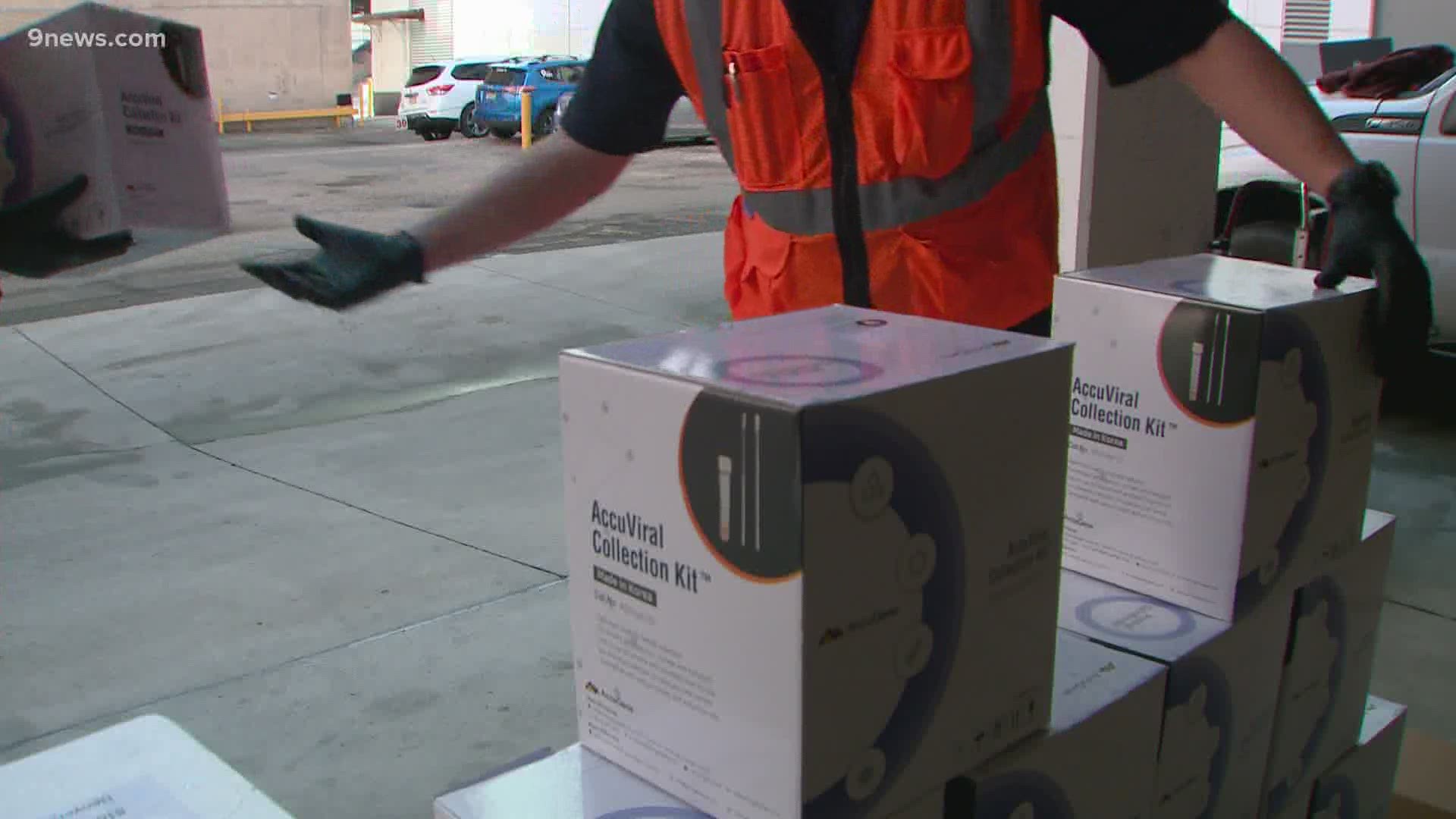DENVER — Denver is facing a $226 million projected budget gap for 2020, something city officials said they plan to mitigate through furloughs, spending cuts, hiring slowdowns and investment prioritization.
That was one of several updates Denver Mayor Michael Hancock touched on during a Thursday afternoon news conference on the city's response to the COVID-19 pandemic.
Other topics discussed during the news conference included the pandemic implications on the city budget, testing, contact tracing and a social safety net for vulnerable populations.
City budget impact
The city's projected $226 million shortfall is the result of a large decrease in consumer spending — both nationally and in Denver.
Brendan Hanlon, chief financial officer for the city, said much of the city's funding is dependent on sales and use tax from that consumer spending.
"When we see a problem, we respond immediately," Hanlon said. "We don't wait."
Things like spending cuts, hiring slowdowns and furloughs are necessary to mitigate the impact, he said.
"We have worked to exhaust every tool we had before taking this step," Hancock said of the furlough days, which were announced late Wednesday.
Furloughs are mandatory days off without pay. City employees will take eight furlough days — five scheduled and three flexible — in 2020, which Hancock said will add about $16 million back to the city's general fund.
Of the approximate 12,000 city employees, all nonuniform employees will be required to take the furloughs. Uniformed employees, who are under collective bargaining agreements, will not be required to take them — nor will elected officials, Hancock said.
"I know how tough this [is] for our employees," Hancock said. "I will be taking the furlough days as well, as well as those in my administration.
Hanlon also said the city has about $261 million set aside emergency and will use some of it to "soften the blow."
Hanlon said the city will focus on several areas to alleviate the budget shortfall, including:
- Capital equipment and fleet purchases reduction
- Transfers to capital improvement fund
- Slowed hiring
- Training, travel and other discretionary budgets
- Furloughs
"The magnitude of what we're facing requires multiple solutions," Hanlon said.
Earlier, the city projected about a $180 million budget shortfall, $46 million less than the newest projection.
Hancock said Denver has a AAA bond rating with Fitch, which will position the city well for recovery. Fitch Ratings Inc. is an American credit rating agency.
Hanock also said he joined Republican Sen. Cory Gardner, Democratic Sen. Michael Bennet and Gov. Jared Polis in urging Congress to pass bills to support states and cities.
"If cities can't recover, there will be no national recovery," Hancock said.
Testing
Hancock said the city's "Wellness Winnie" mobile RV units started offering COVID-19 tests Thursday morning, "delivering tests to those who can't get to the testing sites."
Hancock said anyone who is experiencing symptoms or who thinks they've been exposed to the novel coronavirus should call 311.
A representative will ask some questions to see if he or she meets the qualifications and then provide information on getting tested.
Test results will be available within 24 hours, Hancock said, and patients will be notified of their results regardless if they're positive or negative.
Contact tracing
Hancock said about 100 first responders and other city employees have been trained on contact tracing and will conduct interviews by phone.
Contract tracing is the process of identifying individuals who may have come in contact with an infected person and subsequent collection of further information about those contacts.
Hancock said it's important for people to note that, if they receive a call, contract tracers will always identify themselves and will only ask for basic information like name and date of birth.
They will never ask for things like social security numbers or payments, he said.
"We're trying to provide guidance on how to keep yourself and our community safe," Hancock said.
Social safety net
Hancock said the city has created a council to help ensure the community, particularly those in vulnerable populations, are able to connect with benefits and resources.
Erin Brown, Hancock's deputy chief of staff, said a council that includes community advocates, city employees and health care professionals, is working to provide resources such as:
- Food pantries and food access
- Connections with childcare providers
- Connections to benefits like temporary housing assistance, medical benefits and the Supplemental Nutrition Assistance Program (SNAP).
On May 9, many businesses within the city and other metro area communities were allowed to re-open with 50% of their employees in the office if they were able to maintain guidelines social as 6 feet of social distancing.
Hancock said the city will continue its phased reopening, with things like farmers markets set to reopen this Saturday.
Face coverings are mandatory while inside of or waiting in line to enter any retail or commercial business, or any location or facility offering government of health care services, and waiting for or riding on public transportation. There are exceptions for children under three and those with health conditions.
Hancock said so far, for the most part, people are complying with the rule and that he "shares in the frustration" of people who see others not wearing them.
Cases of the novel coronavirus were first reported in Colorado in early March, and since then, the number of cases has continued to climb. As of Wednesday, there were more than 20,000 cases in Colorado and more than 1,000 deaths related to the virus.
SUGGESTED VIDEOS: COVID-19 Coronavirus


